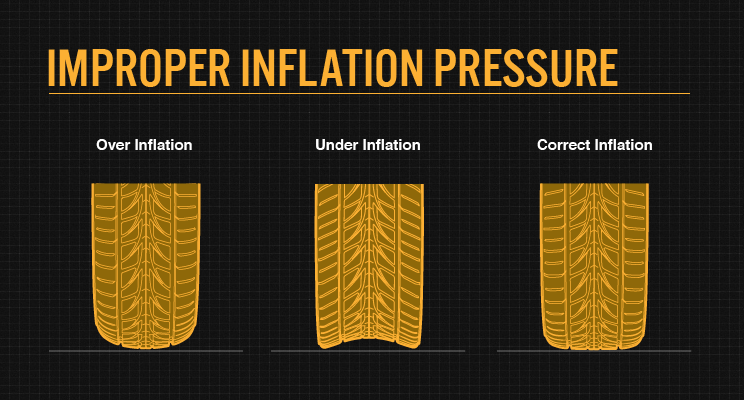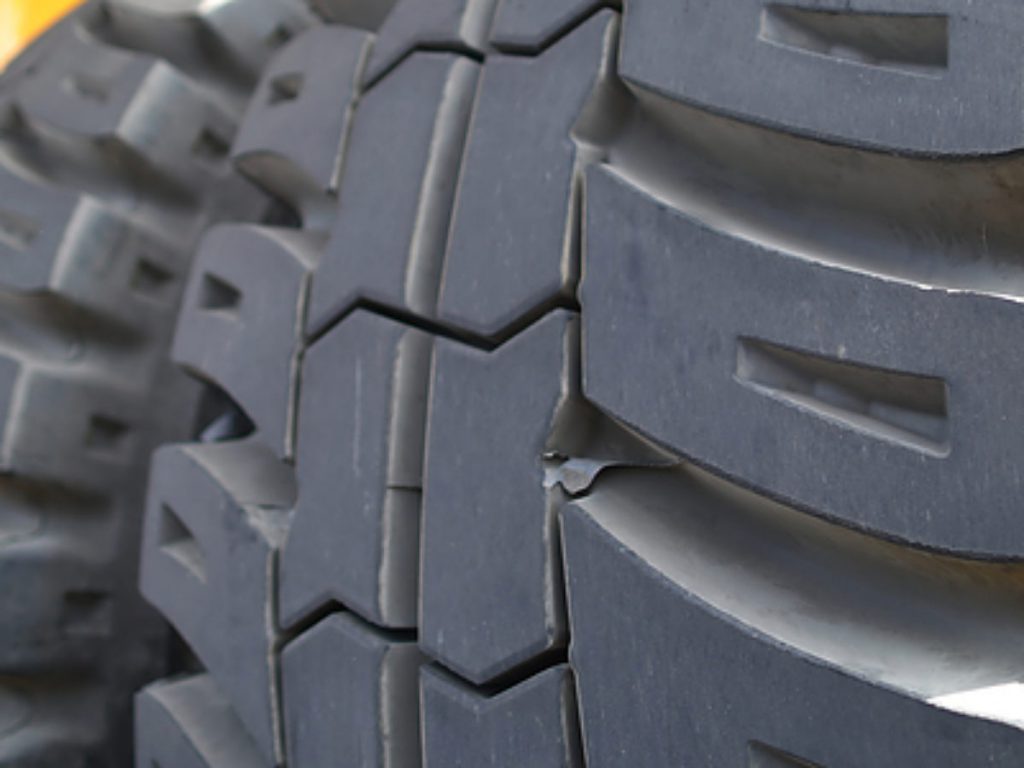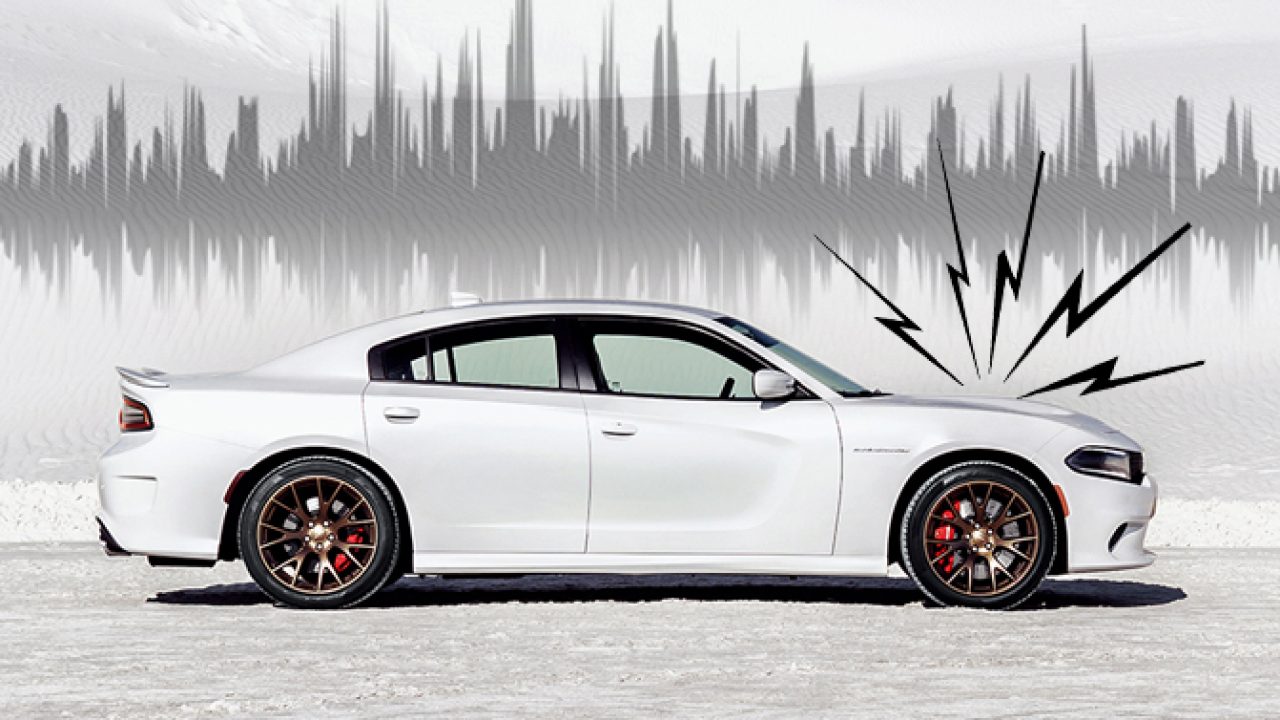Other than the sound of the engine, noises coming from your tires are also another way your car communicates with you. Tires always make noises, that is unavoidable. There are many types of tires, so there are also many types of noises that they make. However, once you get used to the sound coming from your tires, you may detect strange and weird noises coming from them at one time. That can be a sign that something went wrong down there.
But don’t panic yet if you do hear it. You will not have to replace your tires, because the sounds could also be the result of other problems that can be easily fixed, such as re-align your wheels. Let’s get into the details of common causes of tire noise and how to fix them.
1. Squealing noise
When you brake, turn, or accelerate quickie, you will most likely hear your tires squeal. That is the sound of the tread skidding against the road surface as it tries to gain traction. When you brake hard, your car also skids and makes a sound. Sharp cornering can cause the rubber to slide laterally on the road surface, making a noise. However, if you make a gentle turn but still hear noises, you may have underinflated tires or there is a problem with alignment.
Underinflated tires can not handle well the physical forces at work during a turn. When you take a corner on properly inflated tires, they retain their shape better, allowing them to maintain the proper amount of contact with the road. When your tires are worn down, the sidewalls flex excessively and are unable to generate enough traction to turn the car smoothly. Instead, the rubber will slide more sideways and cause a squeal.

This is why when you hear the squealing noise from your tires, check the PSI first. Most cars will tell you the exact PSI for your wheels on the inside of the driver door frame. But overinflating is also advised against. Overinflated tires do not make proper contact with the road, it will cause uneven wear on your tires (like cupping tires) and make the tire more likely to puncture. You should check your PSI every month to ensure your tires’ performance. Remember that your tires will need a little lower PSI in hot months and a little higher in cold months.
If your tires are fine, the problem may lie in the alignment. Wheel alignment issues cause your wheels to pull in slightly different directions, causing the tires to rub against the road and create a squealing noise. Most of us cannot fix wheel alignment at home because it requires specialized equipment to diagnose and correct, so take your car to your local garage and have them do it for you.
A wrong alignment will put more strain on your steering and suspension parts, and it can shorten your tires’ life by one thousand miles! Your fuel economy will be terribly affected and cause you pain at the gas pump. So to save you time, money, and effort on those problems, check your alignment after every 6000 miles (9656 km), or at least every time you change your oil or when you see that your tires wear out too early.
2. Humming noise
Pretty much every car will experience some tire hum. It is the usual noise of your tire rolling on asphalt. Then again, if the noise is louder than usual, that means there is something you need to do about it. Usually a tire rotation. There are a few reasons that contribute to loud tire hum: abnormal tire wear, tire damage, tire scuffing, etc.
Uneven tire wear is the most common cause of humming noise from the tires. Weak rear shocks (particularly on front-wheel-drive vehicles), wheel alignment issues, improper tire pressure, and other issues can all contribute to this problem. If the tires have worn in unusual patterns (the most common pattern is the rear tires “cupping,” a high and low pattern in the rubber that causes a change in the surface area that touches the road), you can see it immediately when inspecting the tread. You have a couple of options to deal with this. To maximize your tread life, do a tire rotation – moving the rear tires to the front and vice versa – to eliminate noise for a while. But eventually, you will need to replace all four tires with new tires.

A bad wheel bearing can also cause a noise that sounds like it’s coming from the tires. However, it is more like a high-pitched squeak or grinding noise than a humming noise. This problem must be resolved as soon as possible. If not repaired, it may cause the wheel bearing to become overheated due to internal friction, causing it to seize.
Tire damage, such as tread separation and shifted belts (commonly caused by defective construction), over-inflation, and hitting potholes and curbs, which results in an out-of-round or out-of-balance tire, are other causes of tire noise.
Tire scuffing occurs when the alignment angles fail to keep the wheels aligned in a turn, causing one tire to scuff sideways rather than rolling forward. The same noise can be caused by your tires’ extremely shallow tread depth. When combined with excessive speed, this can cause tire squealing and possibly traction loss.
SEE MORE:
3. Rubbing noise
This sound is like your tires are rubbing on something while it is rolling. There is this thing you should remember: just because the sound comes from your tires, that does not mean the problem lies in the tires, but it could be in other parts near it. In this case of rubbing noise, the most common reasons are issues with your wheel bearings or brake parts.
If it is the brake parts that cause problems, they mainly are these parts: the caliper, the brake rotors, or the brake pad.
Calipers are discs found on the front wheels of almost every car. The caliper’s job is to clench onto the rotor and cause the vehicle to decelerate. It is one of the more visible parts of the braking system. Road debris, deicing salt, and excessive or rapid braking can accelerate wear and tear. When the calipers start to fail, you’ll notice it whenever you brake. This indicates that a bolt is loose, causing a rubbing or rattling noise. However, this could also be heard if small debris gets inside.
Rotors are large discs inside a wheel; they are the parts that brake pads press down on to stop the wheels from spinning. Failing brake rotors are often caused by rapid stopping, riding on the brakes, or using the brakes when another brake component isn’t performing right. This will result in a longer braking distance, which is dangerous. You can hear squeaking, grinding, or squealing noise. You’ll also feel vibrations while driving.
Brake pads press on rotors as part of the braking process. To be considered in good condition, at least one-fourth of the pad should be visible. Anything less indicates that you should replace your pads as soon as possible. The pad exerts pressure on the rotor, so it will wear out over time. When you come to a stop and hear a squeak, this is an indication that your car’s brake pads are wearing out. Another sign is if your brakes become overheated.
Other than that, wheel bearings could be at fault as well. Wheel bearings are metal circles held together by a ring; they reduce friction as the wheel spins. When you hear a vibrating noise that gets louder as your speed increases, you know your wheel bearing is bad. The car will begin to pull in an unintended direction. When you are on the road, the faster you drive the louder the rubbing noise (or howling noise, like wind blowing outside) will be. You can check it by grabbing the wheel and trying to move it, hearing the wheel while it is rotating, etc.
4. Popping or droning noise
This noise sounds like your car is driving over bubble wrap at low speeds and like a low drone at high speeds. This is because compressed air that is trapped beneath the tire in the spaces between the tread pattern escapes while the wheel is rolling. The bigger the tire tread blocks the louder the sound can be. So if you want to reduce the noise, you may consider changing to other tires that have smaller tread blocks.
On the other hand, it could also be a sign that your tires have “feathered,” which is a term used to describe tires with unevenly worn treads. As a result, feathered tires may be a sign of a worn suspension component, causing tires to hop up and down as you drive rather than rolling smoothly. In this case, tire rotation and new tire change is what you can do, and replace the worn component.
Conclusion
The sound of your tire can tell you a lot about the car’s condition. To prevent these above problems from happening, you should do maintenance on your car properly and have it checked by mechanics according to recommendations in the driver’s manual. Follow the Maintenance Tips to know more about taking care of your beloved car!



